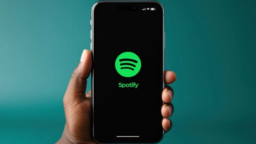Spotify is being sued by songwriter, performer and artist rights advocate David Lowery for up to $150m over alleged unpaid mechanical royalties in the US.
The musician, of indie rock bands Cracker and Camper Van Beethoven, filed the lawsuit in the U.S. District Court of Central California on Monday (December 28), on behalf of himself and ‘the numerous other similarly-situated holders of mechanical rights’.
Lowery’s case, represented by law firm Michelman & Robinson, claims that Spotify “unlawfully reproduces and/or distributes copyrighted musical compositions… despite its failure to identify and/or locate the owners of those compositions for payment”.
It suggests that Spotify’s alleged neglect of the rights of Lowery and his fellow writers is “willful, intentional and purposeful”, and has led to Daniel Ek‘s company “profiting off its own unlawful conduct” – a reference to possible interest earnt on any withheld money.
“[Writers] have been damaged, and spotify unjustly enriched, in an amount [lowery] is informed and believes is not less than $150m.”
Lawsuit text
Lowery’s lawsuit applies for class action status, which if successful would allow other songwriters or rights holders to join and demand money from Spotify.
It reads: “As a direct and proximate result of Spotify’s conduct alleged herein, [we] are entitled to recover all proceeds and other compensation received or to be received by Spotify for its failure to pay royalties. This includes any interest accrued on the royalty funds inappropriately withheld from [us]. [We] have been damaged, and Spotify has been unjustly enriched, in an amount that is not as yet fully ascertained but which [Lowery] is informed and believes is not less than $150,000,000, according to proof at trial.”
Lowery cites as evidence a document submitted by Spotify’s Global Head Of Publisher Relations, James Duffet-Smith, to the US Copyright Office in May 2014, in which the exec described the difficulties faced by digital services when attempting to ascertain mechanical rights-holders in the market.
Duffet-Smith wrote: “Where a copyright owner is not known by Spotify’s [US] licensing administrator Harry Fox, HFA conducts copyright research to try and identify them. One source that HFA uses is the databases of the PROs, but they are considered by HFA to be secondary sources, which means that HFA will write to the person listed as the owner to confirm the accuracy of the information and the share of the copyright owned. If that person does not respond to HFA then it will not be able to comply with the formalities required for the Section 115 licence so that work will not have a mechanical licence to be made available on Spotify’s services.”
“On the other hand, if the work is listed in the PRO database then it will be covered by Spotify’s blanket licence from the PRO. This means that in some cases, Spotify will be licensed for performing, but not mechanical rights in the same composition. This would not be an issue if there were a blanket licence available for mechanical rights, or if there were a database that could be relied on.”
In response to Lowery’s lawsuit – which you can read in full through here – Spotify spokesperson Jonathan Prince commented: “We are committed to paying songwriters and publishers every penny. Unfortunately, especially in the United States, the data necessary to confirm the appropriate rightsholders is often missing, wrong, or incomplete.
“Unfortunately, especially in the United states, the data necessary to confirm the appropriate rightsholders is often missing, wrong or incomplete.”
Jonathan Prince, Spotify
“When rightsholders are not immediately clear, we set aside the royalties we owe until we are able to confirm their identities. We are working closely with the National Music Publishers Association to find the best way to correctly pay the royalties we have set aside and we are investing in the resources and technical expertise to build a comprehensive publishing administration system to solve this problem for good.”
As Prince hints, the timing of Lowery’s suit is intriguing: it was filed just days after Duffet-Smith announced on Spotify’s blog that the service is investing in its very own comprehensive global rights database for publishers and songwriters.
Spotify is believed to be working in conjunction with the US National Music Publishers’ Association and other worldwide publisher organisations to build the database.
The US mechanical royalties issue is nothing new.
In October, Spotify was publicly criticised by indie label Victory Records after its publishing operation, Another Victory, discovered that due mechanicals for thousands of its songs remained unpaid by Spotify.
Spotify ended up temporarily removing the songs from its service before reinstating them.
David Israelite, CEO and President of The National Music Publishers’ Association, subsequently estimated that as much as 25% of royalties are not being paid to publishers by streaming services – or are being distributed incorrectly – due to metadata matching issues.
Justin Kalifowitz, CEO of Downtown Music Publishing, told the MBW Podcast earlier this month: “The record companies, on a weekly basis, upload thousands of new sound recordings that utilise underlying song copyrights without including the metadata of who the publisher and songwriter are. The amount of uncleared music that goes online is insane – even for big hits.
“My guess is that Spotify is not pleased with songwriters complaining about low levels of payment… it’s inexcusable that it’s assumed less than 80% of [due money] is making its way to songwriters and publishers because of data issues.”
One way or another, it looks like that problem is going to get sorted in 2016.Music Business Worldwide





